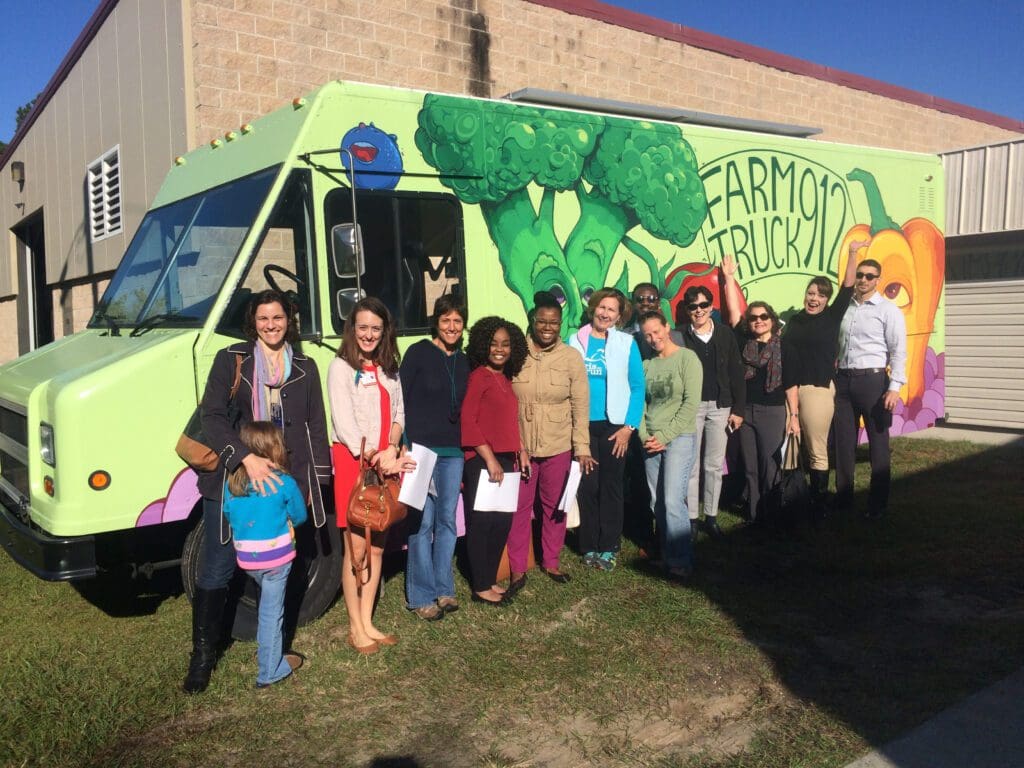
Savannah, Georgia, with its centuries-old architecture and cobblestone-paved streets, is known for its rich history. And it’s that storied past that motivates some public health and racial equity advocates to make history of their own.
“I always say we are a social movement, not a program or a project,” explained Paula Kreissler, who lives in Savannah. “To have a culture of health in our community, it must be easy for people to make healthy choices. Our mission is rooted in health equity – everyone, regardless of income, neighborhood, race, age or ability, should be able to live long, healthy, fulfilling lives.”
The movement Kreissler refers to is Healthy Savannah, a nonprofit she’s worked for since its inception in 2007. As executive director, she has made it her mission to change the way residents of color and those with lower incomes encounter the city by making it a healthier place to live, work and play. Her chief goals: to promote equitable opportunities for residents to engage in physical activity and consume a nutritious, balanced diet through policy, systems and environmental change.
While the organization started small but mighty with virtually no budget, it has grown into a robust nonprofit that listens to the community and facilitates carrying their voices forward to policy makers to improve health equity, a service that cannot be found anywhere else in the community. Kreissler credits the resources from Voices for Healthy Kids, which include technical assistance (TA) and funding, with some of her organization’s early and recent successes.
“The Voices for Healthy Kids grants have been key to us achieving so many wins, so I am forever grateful,” said Kreissler. “Healthy Savannah often gets the credit because we have boots on the ground and because we put in the work, but without Voices for Healthy Kids providing us with critical TA and trusting us with the funding it provided to us, we wouldn’t be where we are today.”
It all started with a grant Healthy Savannah applied for and received from Voices for Healthy Kids back in 2016. Healthy Savannah had long wanted to revise zoning ordinances in the city’s neighborhoods comprised predominantly of people of color. The zoning ordinances were outdated, having been unchanged for more than six decades, and as such were negatively impacting the health and well-being of residents.
“When we looked at the city ordinances, we discovered the documents were inches thick,” Kreissler explained. “We simply didn’t have the resources to commit to making a lasting impact. But the grant we received from Voices for Healthy Kids allowed us to designate staff to review, analyze and make suggested changes to zoning codes in a meaningful way.”
And that commitment paid off. Healthy Savannah, including critical coalition partners, was successful as the City of Savannah adopted the zoning ordinance that changed the city’s zoning code to allow for a more vibrant social fabric through increased density, improved walkability, more tree canopy, shorter city blocks and better access to healthy foods.
“Another huge achievement was being able to set up a mobile farmers market to supply areas lacking full-service grocery stores with healthy fruits and vegetables,” Kreissler said. “The mobile truck makes 10 stops each week. For every $1 participants of the Supplemental Nutrition Assistance Program (SNAP) spend, they get $2 in produce. This helps people stretch their food budgets while also incentivizing them for replacing processed foods with fresh foods.”
Healthy Savannah has also successfully worked with convenience and corner stores to add fresh produce, like collard greens, carrots, broccoli, potatoes and, of course, Georgia-grown peaches, to their shelves and refrigerators.
Staff, advocates and partners are currently working with grocery stores to exchange the candy bars, chips and sugary drinks surrounding customers waiting in checkout lines with wholesome snacks, shelf-stable produce and water.
“We’re not looking for quick fixes; instead, we want to make sustainable, long-lasting changes to our community and grants, like those from Voices for Healthy Kids, have helped us do that,” Kreissler explained. “For example, we were able to show the Centers for Disease Control and Prevention (CDC) just how much communities with low incomes and high chronic diseases were changing their health outcomes when provided the appropriate and sufficient resources to do so. This led to us, in association with the YMCA of Coastal Georgia receiving $3.4 million in funding from the CDC to provide our communities with even more resources.”
For example, for every $1 in grant funding Healthy Savannah received from Voices for Healthy Kids, it was able to raise an additional $18 in grants from other funders. All that money was reinvested back into the community for the community and by the community.
“Community buy-in and participation are key,” Kreissler said. “In fact, community advocates have been so integrated in helping change their neighborhoods that they don’t say, ‘Look what Healthy Savannah did.’ No, instead they say, ‘Look what we did, all of us.’ This is what we strive for in all we do – to help facilitate the healthy changes the community wants.”
This article appeared on https://voicesforhealthykids.org/ on 5/21/2021.

